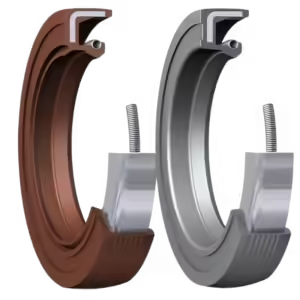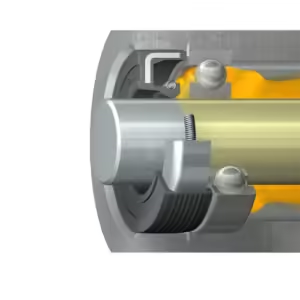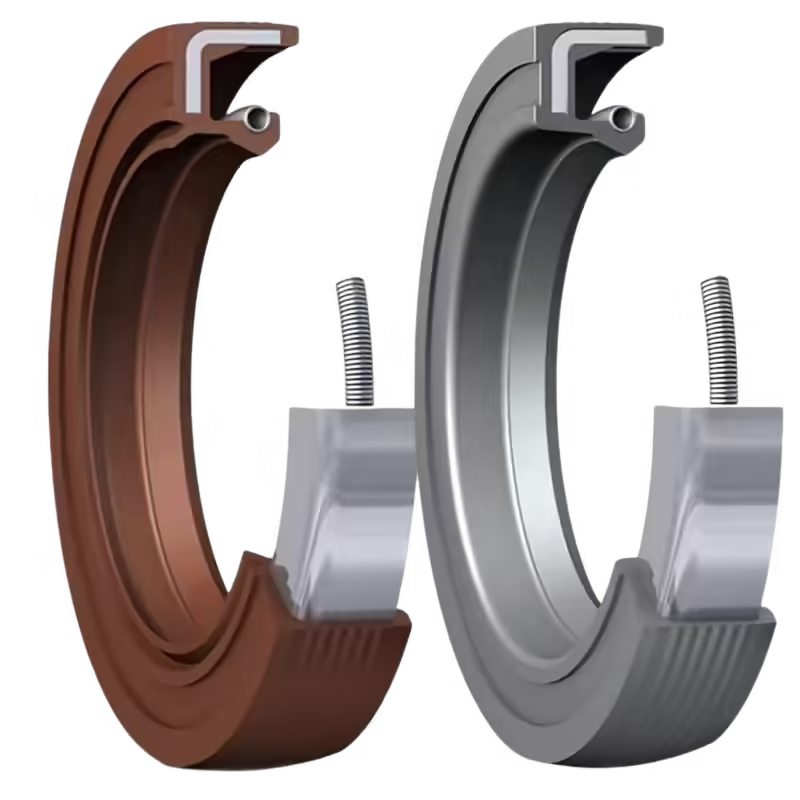Oil Seal Installation & Selection Guide: Technical Best Practices for Optimal Performance
Introduction: Why Oil Seals are Essential in Industrial Equipment
Oil seals play a crucial role in industrial equipment by preventing lubricant leaks and blocking contaminants from entering critical machinery components. Proper installation ensures extended seal life and reliable equipment performance, significantly reducing downtime and maintenance costs.
Explore our full range of high-quality oil seals supporting automotive, machinery, and industrial applications at drorubber.com/oil-seals.


Types, Structures, and Material Selection for Oil Seals
Common Oil Seal Types:
- Single Lip
- Double Lip
- Spring-loaded
- Metal-cased
Seal Structure Components:
- Elastomer sealing lip
- Outer casing
- Garter spring
Material Selection Guide:
| Material | Thermal Range | Chemical Resistance | Mechanical Durability |
|---|---|---|---|
| NBR | -40°C to 120°C | Moderate | Good |
| FKM | -20°C to 250°C | Excellent | Very Good |
| Silicone | -60°C to 200°C | Moderate to Good | Moderate |
| PTFE | -70°C to 260°C | Outstanding | Excellent |
For detailed technical specifications, visit drorubber.com/oil-seals.
Pre-Installation Preparations for Enhanced Performance
- Ensure shaft hardness, surface finish (Ra ≤ 0.2–0.8 µm), and concentricity meet industry standards.
- Thoroughly clean and deburr surfaces.
- Handle and store seals carefully to prevent damage.
- Match seal materials accurately to operating conditions and media.
Contact our engineering team for tailored assistance at drorubber.com/oil-seals.
Recommended Tools for Effective Oil Seal Installation
Essential tools include:
- Mandrel
- Seal driver
- Arbor press
- Protective sleeve
- Dial indicator
Avoid makeshift tools to maintain sealing lip integrity. Specialized toolkits are recommended for MRO and assembly lines.
Step-by-Step Guide for Oil Seal Installation
- Clean all contact surfaces.
- Lubricate sealing lip and shaft with compatible lubricant.
- Position the seal perpendicular to the bore.
- Evenly press the seal with the proper tool.
- Inspect thoroughly for proper seating and uniform seal compression.
Common Installation Mistakes to Avoid
- Misalignment: Causes premature seal failure.
- Dry Installation: Leads to rapid wear.
- Excessive Force: Deforms casing, compromising sealing integrity.
- Sharp Shaft Edges: Causes lip damage. Use chamfered or protective sleeves (refer to our guide at drorubber.com/oil-seals).
Essential Post-Installation Checks
- Confirm alignment, seating depth, and rotational freedom.
- Perform slow-speed rotations initially.
- Conduct thorough inspections within the first 8–24 operating hours.
Maintenance, Removal, and Replacement Best Practices
- Regular inspection schedules vary by industry (e.g., automotive, hydraulic systems).
- Identify seal failure through leakage, unusual noise, overheating, or vibrations.
- Follow safe removal practices to preserve shaft and housing integrity.
For custom replacements or technical support, contact us directly at drorubber.com/oil-seals.
Frequently Asked Questions (FAQs) for Bulk Buyers
Q1: What factors should I consider when ordering oil seals in bulk?
Consider application parameters (pressure, media compatibility, temperature, rotational speed), standardization opportunities, certifications, dimensional accuracy, and traceability.
Q2: How do I ensure compatibility with my equipment?
Verify shaft dimensions, bore measurements, fluid compatibility, and design conformity with OEM or international standards (DIN/ISO). Our technical team can review drawings or samples submitted via our website.
Q3: What is the lead time for custom oil seals?
Standard lead time ranges from 10 to 20 working days. Initial orders may require additional 5–7 days for mold preparation and sample approvals. Expedited production options are available upon request.
Contact DRO Rubber for Expert Support
For professional assistance, custom orders, or bulk procurement advice:
- Website: drorubber.com
- WhatsApp: +0086 15815831911
- WeChat: +0086 13784044874





